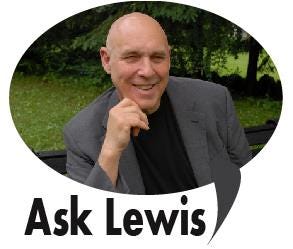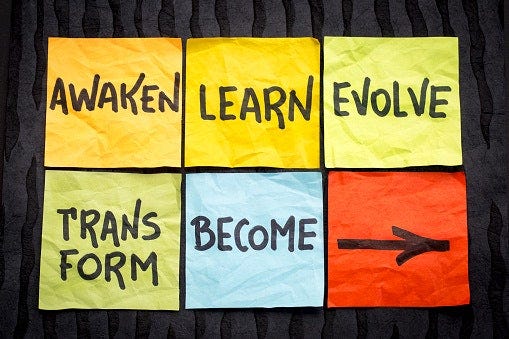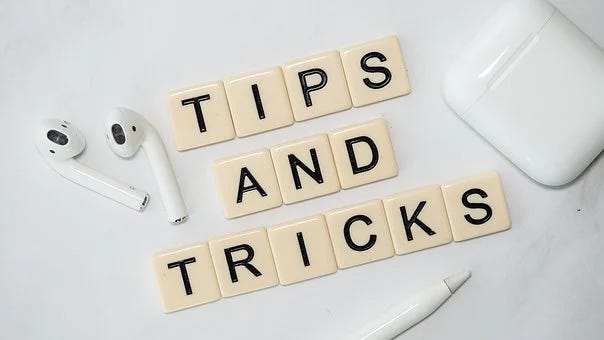The Best Meditation Tips to End Stress
7 Simple tips for emotional and mental harmony
“This newsletter serves a demographic of highly intelligent readers, and deep thinkers with a passion for ideas, critical thinking, strategic game theory, and a desire to understand the world around them. Readers of my posts are usually tired of being patronized elsewhere by fact-less, opinionated know-nothings, misinformation, conspiracy theories, and fake news.
“Knowledge is power, wisdom brings meaning, contentment, and happiness!”
———————————————————
———————————————————
On a personal note: Please excuse grammatical errors, typos, repetition, and any general nonsense, and such in this post. I am getting a bit older now, and I have about 20,000 pages of information that must get published before I leave the mortal coil. I simply write and publish more than my humble editors are able to correct. If you find enough errors you are welcome to contact me about being an editor of my work.
Thanks for sharing this newsletter with your friends and associates - Join us for daily tips on personal development at our free Self-Improvement for Beginners Group and Forum
Click Below or cut and paste the URL to Join
https://www.facebook.com/groups/455029215769173
———————————————————
A 4 - Minute Read
Q. Lewis, I often get panic attacks when in stressful situations. Do you have any tips to help me out here?
A. Yes. Anxiety attacks are part of a group of mental disorders characterized by significant feelings of fear and anxiety. Anxiety is usually a worry about future events, while fear is a reaction to current events. These feelings may cause physical symptoms, such as increased heart rate and shakiness.
Common signs and symptoms include:
· Feeling nervous, restless, or tense.
· Feeling weak or tired.
· Having a sense of impending danger, panic, or doom.
· Trembling.
· Having an increased heart rate.
· Breathing rapidly (hyperventilation)
· Sweating.
· Trouble concentrating or thinking about anything other than the present worry.
There are several different anxiety disorders, including generalized anxiety disorder, specific phobias, and others.
These different disorders differ in what results in the symptoms. It is possible for an individual to have more than one anxiety disorder.
The cause of anxiety disorders is thought to be a combination of genetic and environmental factors. Risk factors include a history of child abuse, a family history of mental disorders, and poverty.
To be diagnosed, symptoms typically need to be present for at least 6 months, be more severe than the symptoms that would normally be expected for certain situations, and decrease a person’s ability to function in their daily life. Anxiety disorders differ from normal anxiety or fear by being excessive or persisting.
Panic attacks may also occur due to short-term stressors. Significant personal loss, including an emotional attachment to a romantic partner, life transitions, and significant life changes may all trigger a panic attack to occur. A person with an anxious temperament, excessive need for reassurance, overcautious view of the world, hypochondriacal fears, and cumulative stress have been correlated with panic attacks. In adolescents, social transitions may also be a cause.
People will often experience panic attacks as a direct result of exposure to an object/situation that they have a phobia for.
Panic attacks may also become situationally bound when certain situations are associated with panic due to previously experiencing an attack in that particular situation. People may also have a cognitive or behavioral predisposition to having panic attacks in certain situations.
“I have anxiety, I’ve always had anxiety both in the lighthearted ‘I’m anxious about this kind of thing, and I’ve been to the depths of the darker end of the spectrum, which is not fun. …When the curtain opens, I turn on this knucklehead, and he kind of takes over and goes away again once I walk off set. That’s a great self-defense mechanism. I figure if you’re going to jump off a cliff you might as well fly.”
— Ryan Reynolds
Treatment
Without treatment, anxiety disorders tend to remain. Treatment may include lifestyle changes, counseling, and medications.
Among the non-drug, non-medication treatments for the condition are:
1. Cognitive Behavioral Therapy
2. Yoga,
3. Tai Chi,
4. Meditation,
5. Specialized breathing exercises,
6. Laughter yoga,
7. Emotional release bodywork/massage
Many studies indicate that generally speaking between 12% -15% of people are affected by an anxiety disorder in a given year, and between 5% and 30% are affected over a lifetime.
Other general statistical ranges concerning anxiety disorders:
· They occur in females about twice as often as in males,
· They generally begin before age 25,
· They most commonly appear as specific phobias which affect nearly 12% of sufferers,
· They appear commonly as social anxiety disorder, in10% of sufferers,
· As phobias, they mainly affect people between the ages of 15 and 35, and become less common after age 55.
· Rates of the condition appear to be higher in the United States and Europe than in other parts of the world.
Email me (LewisCoaches@gmail.com) or DM me for a free list of more tips to end your stress.
Author: Lewis Harrison is a writer, teacher, public speaker, and seminar leader. He focuses on problem-solving, strategic thinking, self-improvement, personal development, and sharing love with the world. He suffered from depression earlier in his life. He offers many courses and mentoring programs to help you become more EEPPASA (effective, efficient, precise, productive, accurate, and self-aware)
“I am the former host of a talk radio show on an NPR affiliated station in NY. I have a bottomless passion for the application of game theory in decision-making. My game theory/business website is AskLewisGameTheory.com.”
“I am always exploring trends, areas of interest, and solutions to build new stories upon. Again, if you have any ideas you would like me to write about just email me at LewisCoaches@gmail.com”.
……………..Lewis
———————————————————————————
If you want to live a struggle-free life, filled with knowledge and wisdom, please consider signing up for our course Winning the Game of Life: Lewis Harrison’s Life Strategies Playbook Method from A-Z.
Click on the button just below or copy and paste the link to learn more about the course …
——————————————————








